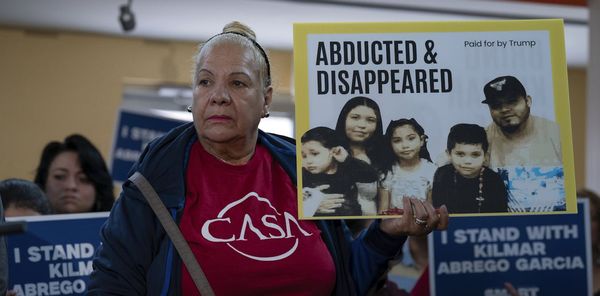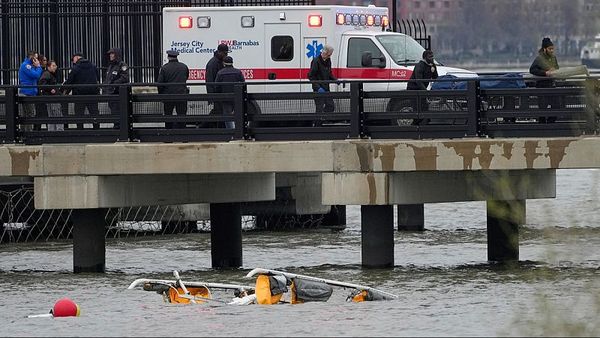
Kristina Reid is trying to make the best of a bad situation. The walls of the motel room she has called home for the past two years are plastered with photographs of her smiling daughters. Her bed is neatly made, and tins of budget beans and tomatoes are stacked in tidy rows in the small cavity above the mini-fridge.
More than anything, Reid wishes for stability; a rental close to family, somewhere she can plant a garden – a place her four daughters can call home.
Reid is one of more than 9,000 people, including more than 4,100 children, living in New Zealand’s emergency accommodation, which is almost entirely run through privately owned motels.
After a stint living in her car, the 38-year-old moved into a room on Rotorua’s Fenton Street – a strip of motels that once served visitors in the famous tourist town and now houses the region’s homeless.
The use of motels for emergency accommodation began in 2016, under the previous National government. It was intended to be a stop-gap, but as the country’s housing crisis worsened, the need for motels swelled. In 2020, when international borders closed due to Covid-19, the government used newly empty motels to move people off the street as the country locked down.
Despite the government’s attempts to build more public housing, demand keeps growing. There are now more than 26,000 people waiting for social housing, nearly 21,000 more than five years ago, as a cost of living crisis driven by surging inflation adds to the already immense economic pressures on households.
The wait for a permanent home can lead to months, or even years, of limbo.
“It takes a toll on your family … you get judged because you can’t afford a house,” Reid says.
Reid says the shame that comes alongside deprivation is something everyone in the motel feels, saying that she often shops early in the morning so fewer people see what she puts in her trolley.
“We all have the same connection,” she says. “The loss of something.”

‘Revolting for families’
For many people, motel accommodation is vastly preferable to living on the street or in a car. But a recent investigation by TVNZ has raised serious concerns about the substandard conditions of some of Rotorua’s motels, and highlighted issues of violence and sexual abuse on site, and of fire risks to some of the buildings.
The prime minister, Jacinda Ardern, told TVNZ that the government did not want motels to be long-term places for any New Zealander, but that she would “much rather that people have temporary housing that is not a garage, [or] a car”.
“As a government [we are] responsible for building 10% of the state houses that New Zealand has in total,” Ardern said. “That’s how quickly we’ve moved – over 10,000 houses – but we need to keep going so that in the longer term we don’t need those motel contracts in the first place.”
But the report has prompted calls for an independent investigation from both Te Pati Māori (the Māori party) and National into emergency accommodation, particularly in Rotorua.
After two terms in power, the government can no longer continue to rely on comments that motels are better than being in cars or a garage, says Rawiri Waititi, Te Pati Māori’s co-leader.
“If you’re sleeping in motels that are unsafe for our people, that have allegations of sexual abuse, it might be better to stay in a car,” Waititi says. “They’ve got to stop pushing that rhetoric and start putting people in homes like they promised.”
Rotorua has become a hotspot for motel accommodation but it is a nationwide scheme, with most tenants living in the country’s biggest city, Auckland.
Helen Robinson, the missioner for Auckland City Mission, said the government recognised the problem but could not build or acquire houses fast enough to keep up with demand, adding that the country is playing catch-up on 30 years of underinvestment in social housing.
Living in motels is “revolting for families” and people should not be staying in them beyond a few days, she says. “But that’s just not realistic in the current system.”
Now the border has reopened, Robinson also worries motels will evict housing tenants to make way for tourists. “It’s one of those things that I’d quite like to be very wrong about.”

‘All of us just want a home’
For Letitia Banks, 40, and her 21-year-old son, the wait for a home feels endless. The pair has been shuffled between motels in Rotorua for five years, after Banks’ previous relationship broke down and she had to leave her home.
Banks has been searching for a rental property ever since, but with more people moving to the region, higher rents and intensive vetting processes, her hope is dwindling.
“It’s more paperwork, more questions. A lot of people out there don’t know the situation we’re in. It’s just not that easy to get a place these days.”
Now, Banks faces another move, after the motel she was staying in was deemed a fire risk. If housing services cannot find her a permanent home in the next few weeks, she and her son will be moved to yet another motel.
“I get bad anxiety, sometimes I don’t even want to leave my room … You don’t know how long you’re going to be here, if you’re going to be moving, it’s quite stressful,” she says. “All of us just want to be in a home and feel safe.”







